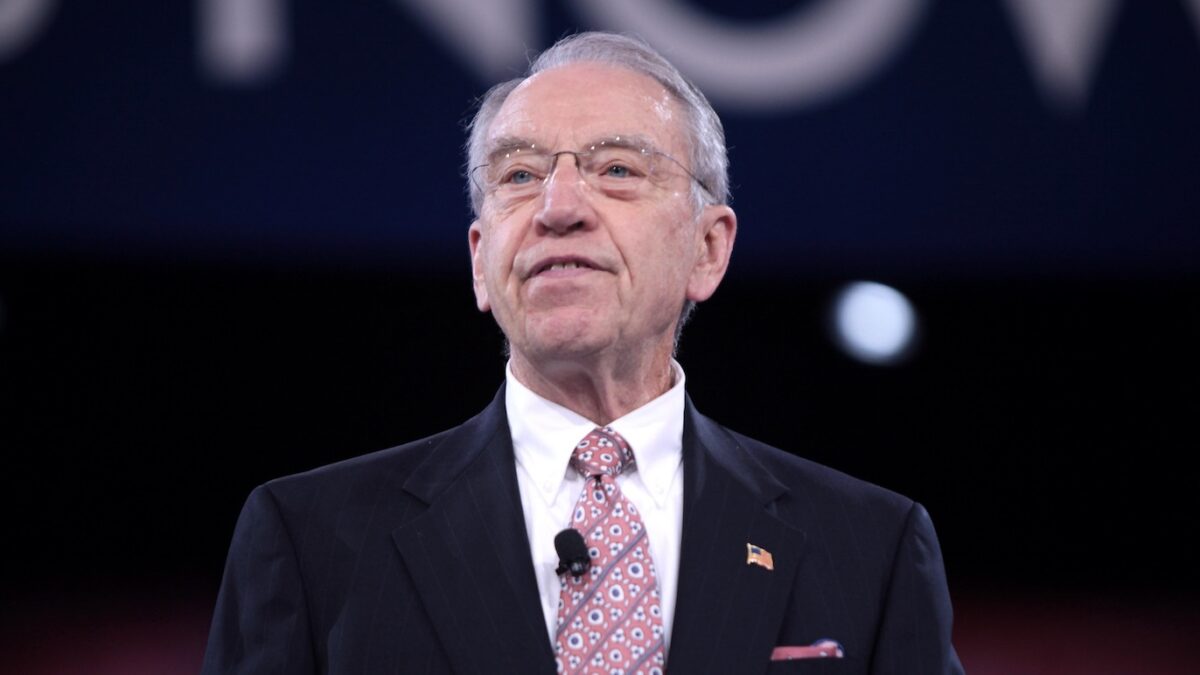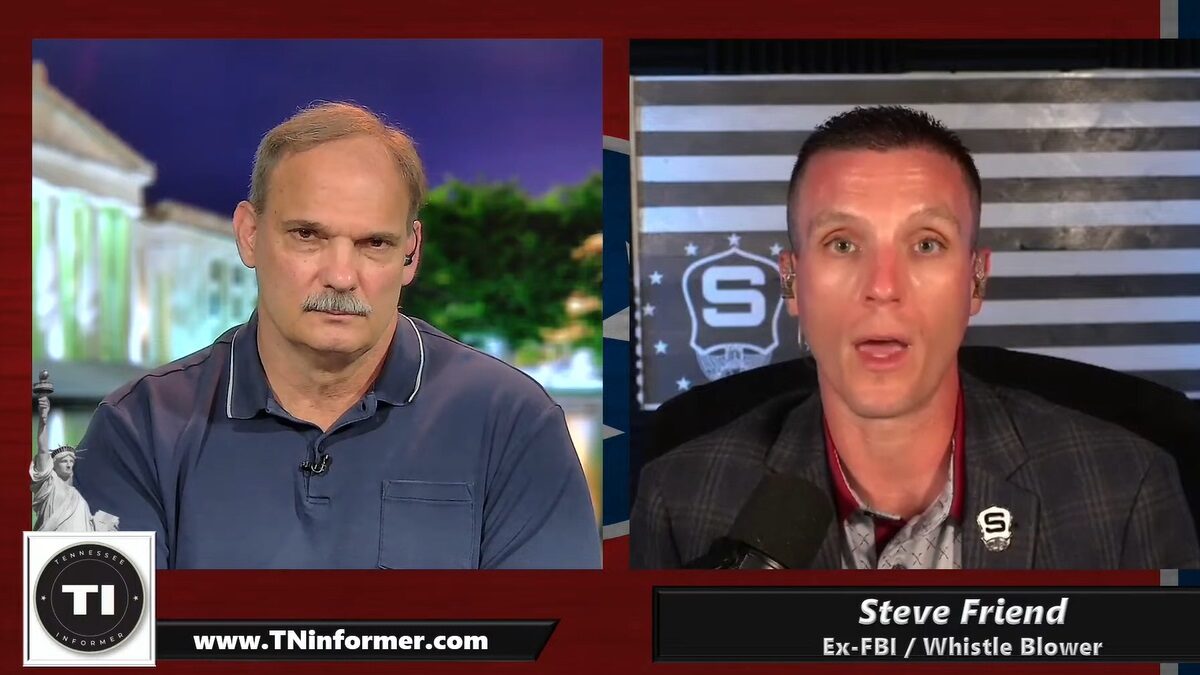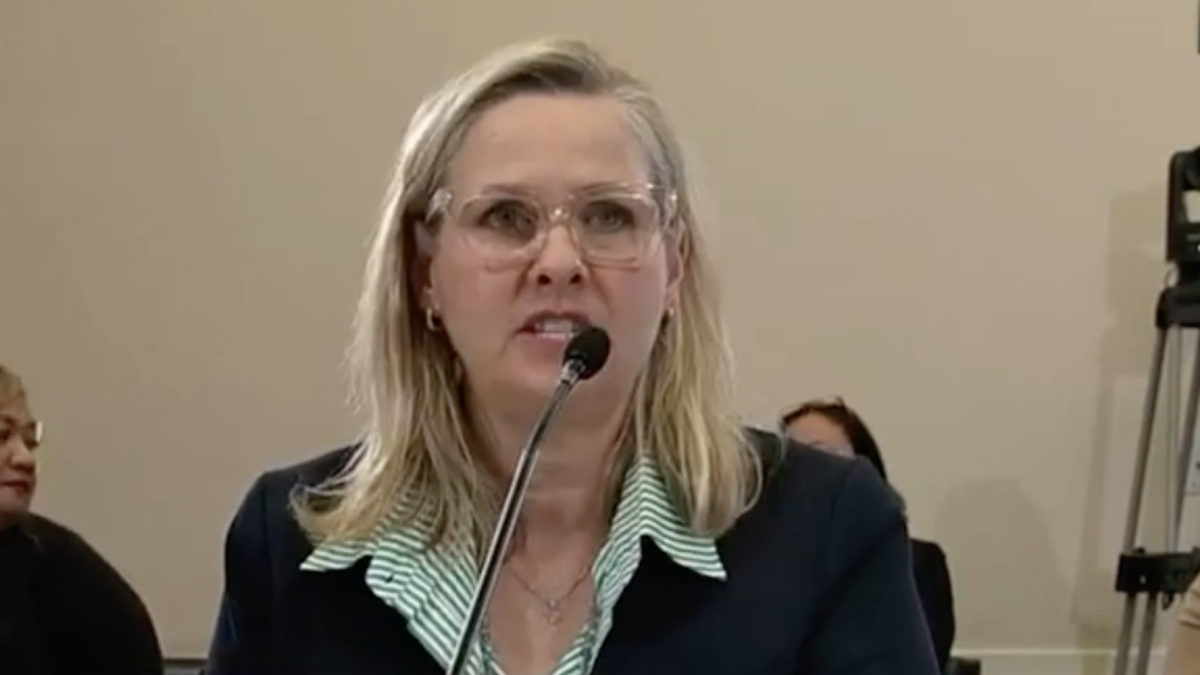
On January 10, 2020, FBI Director Christopher Wray gave the Foreign Intelligence Surveillance Court a figurative middle finger. Wray filed a response to the court’s December 17, 2019 order reacting to shocking revelations of the FBI lying to procure and maintain a warrant to spy on the Trump campaign by surveilling Carter Page. To trace the contours of his middle digit, it’s important to first review the FBI misconduct the court intended to address.
The original sin of the Page spying effort is that no spying was necessary, which legally barred the FBI from even asking for the warrant. The month before the FBI asked for the warrant, Page wrote none other than James Comey, then director of the FBI, a letter offering to submit to an FBI interview to answer any questions the FBI might have.
Page had a history of voluntarily sharing truthful and accurate information with both the CIA and the FBI on the very same subjects about which Comey wanted to spy. After receiving this offer, Comey personally, but falsely, certified that Foreign Intelligence Surveillance Act (FISA) secret spying was the only way to get at the information the FBI sought. One FBI lawyer later doctored an email from the CIA to hide Page’s cooperation from the court. The FBI knew what it was doing and went to great lengths to hide it from the court.
We’ve known since January 18, 2018, now two years ago, that the FBI based its warrant application on information from Christopher Steele, a man who used his relationship with the FBI to legitimize a smear-for-hire campaign. This in spite of having caught Steele leaking the FBI investigation to the press (and lying about leaking).
The Steele smear operation wagged the FBI dog. Steele leaked the existence of the FBI investigation of his smears to add the credibility of a federal investigation to the smears.
By January 2017, all of the federal investigators knew that Steele’s hearsay source disavowed the smears. But they renewed the warrant twice after that. These weren’t mistakes. The FBI knew Steele was lying to them but used those lies to keep a warrant going. The FBI director knew the target had offered to sit for an interview but ignored the offer because Page was a window into Trump’s inner circle.
Then Deputy Attorney General Rod Rosenstein once assured the public of what should be (but isn’t) true: “Just like a search warrant, in order to get a FISA search warrant, you need an affidavit signed by a career federal law enforcement officer who swears [Rosenstein raised his right hand for effect] that the information in the affidavit is true and correct to the best of his knowledge and belief. And if it’s wrong . . . that person is going to face consequences . . . you can face discipline or even prosecution.”
Rosenstein himself certified the last FISA renewal. He, like so many others, has faced no consequences for the many falsehoods contained in the document.
That brings us to Wray’s response. Page 2 correctly understood that the court ordered the FBI “to explain why the FBI’s applications should continue to be regarded as reliable in light of the OIG report.” But Wray refused to even refer to the FBI misconduct as deceptions. Instead, he insults the reader by referring to “multiple omissions and misstatements.”
Wray wrote that the court should trust the FBI for three reasons. First, because of the FBI’s “existing accuracy procedures.” Second, because of the existing internal FBI oversight procedures. Third, “the corrective actions” Wray announced in his response.
Obviously, the existing procedures failed to prevent the FBI team from lying to the FISA court, so one’s attention is naturally drawn to what Wray says the FBI will do differently in the future cases. Wray promised he would send a message to the entire FBI workforce on January 13 reminding employees of the importance of adhering to accuracy procedures.
He added that he will direct changes to the FISA application form and demand that a new human source “checklist” be used. He also indicated that he would modify existing training to add a case study module incorporating the Page FISA warrant scenario. Wray will also direct revisions to a 2009 memorandum setting forth FISA procedures.
Wray will increase the involvement of “Headquarters Senior Executives” in reviewing FISA applications. This last revision actually makes the problem worse, as all of the misconduct associated with Page FISA application came from inside the leadership circle that Wray now says will watch the field offices. Wray has also established a “working group” that will develop a new questionnaire.
In other words, Wray is expecting us to believe that FBI agents lied to a court because they didn’t have the right form or needed more training. A normal court would consider the response to be an insult and an act of defiance towards its constitutional authority. But the FISA court is not a normal court.
This is far from the first time the FBI promised to stop abusing the FISA process but didn’t. Read here for a disturbing history of the FISA court’s impotent efforts to get the FBI to stop illegally spying on Americans. It’s pretty clear that Wray has nothing to worry about from this court.
Wray can be assured that the FISA court will welcome his whitewash approach to the FBI’s misconduct, as the court recently added its own insult to the FBI’s injuries to the Constitution. As noted by Mollie Hemingway, “The nation’s top spy court appointed an Obama-era Justice Department official who has denied and downplayed FBI surveillance abuse to assess the FBI’s response to a scathing new report cataloguing problems with how the agency secured authority to spy on a Donald Trump campaign affiliate.” You can read that order here.
Twitter sleuth Techno Fog efficiently demonstrated here the chutzpah of appointing the deep state guardian David Kris to review FISA abuse. This is a man who characterized as lies the now-vindicated FISA memo by Rep. Devin Nunes (R-Calif.).
In several places in the January 10 filing, Wray mentioned striking “a balance between its absolute commitment to improving its processes and maintaining the Court’s trust and meeting its continued obligation to conduct national security investigations and operations effectively.” Wray has it exactly wrong. Wray’s tolerance of the FBI’s deceptive behavior has harmed the FBI’s ability to conduct operations.
Judges will wonder about FBI search warrant affidavits when the FBI never punishes agents who lie. Jurors have reason to question whether agents are truthful under Wray’s permissive leadership. Potential interviewees have every reason to refuse to cooperate in light of the Michael Flynn and George Papadopoulos perjury traps. The FBI can’t and shouldn’t “balance” between being trustworthy and doing its job. It should do both.
The president should fire Wray. Read here, here, here, and here if you need more reasons. If Trump doesn’t have the courage to get rid of Wray, he doesn’t deserve a second term, because the behavior Wray is enabling is a direct threat to free and fair elections.









